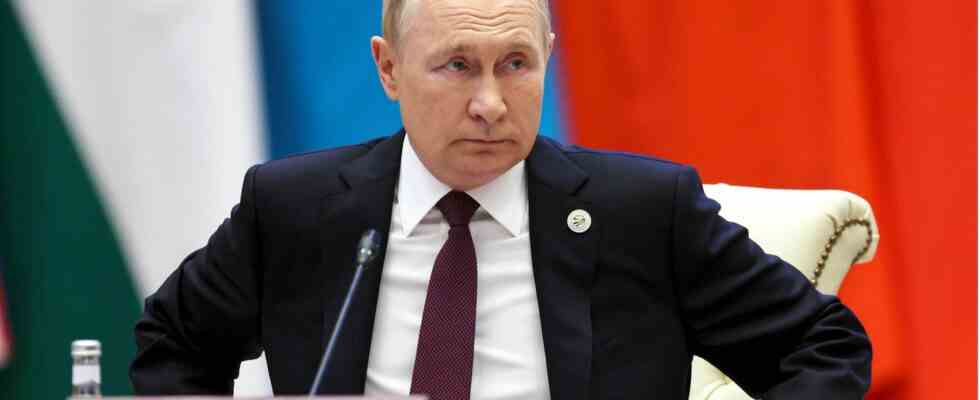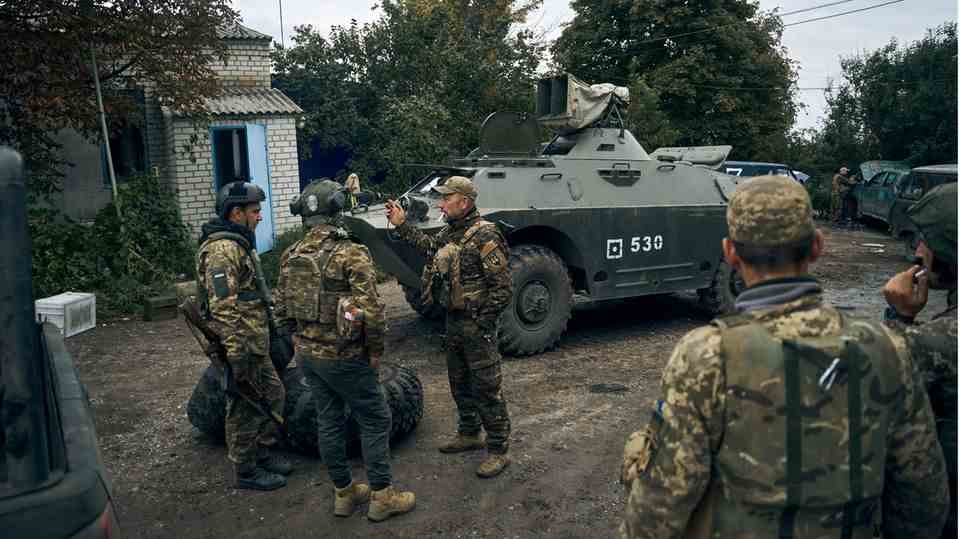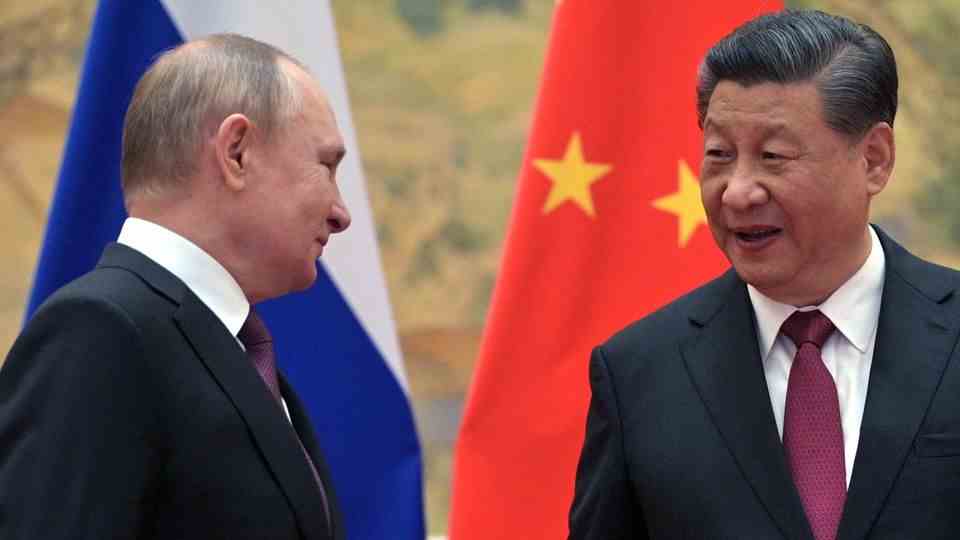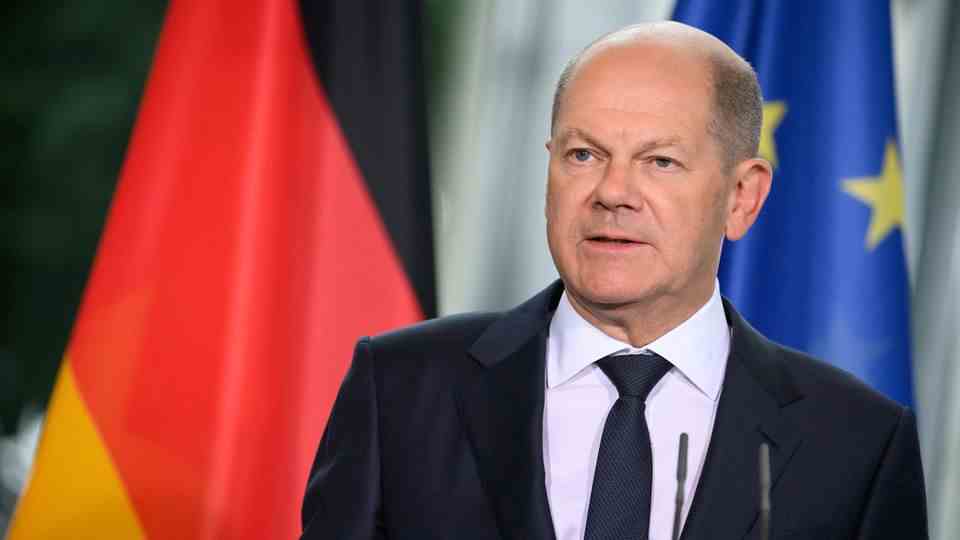China and India have put a diplomatic damper on Vladimir Putin. Russia’s president is dependent on the goodwill of both countries – and tries demonstratively to appease.
So what’s left to hold onto? After China, India has also distanced itself from Russia’s campaign against Ukraine. President Vladimir Putin has thus received a (second) diplomatic setback in a series of setbacks for Russia in recent days. And once again the question arises as to how the warmonger from the Kremlin will react.
But one by one.
India’s Prime Minister Narendra Modi told Putin on Friday that it was no time for war, although the Russian president threatened to escalate hostilities again. Modi delivered his criticism during a meeting with the Russian president at the SCO meeting, a kind of counter-G7 summit, in Uzbekistan – just a day after Putin admitted Chinese leader Xi Jinping has “questions and concerns” about the war.
“Today is not an era of war”, Modi said at the start of the meeting on Friday. Rather, the focus should be on issues such as food, fertilizer and fuel safety. “Today we will have an opportunity to discuss how we can move forward on the path of peace.”
The mild criticism stands out from a series of cordialities that India’s prime minister and Russian president exchanged. Nevertheless, Putin gets to hear the quiet note of protest at a phase of his war that is anything but optimal for the Kremlin ruler. Most recently, the Russian army had to withdraw from numerous contested areas of Ukraine as a result of a counter-offensive, while the Criticism of Putin’s warfare in Russia is getting louder.
Will Russia escalate the war further?
Despite the recent setbacks, the Russian President wants to continue the campaign against Ukraine and is deliberately relaxed. “We’re in no hurry” said Putin on Friday in a press conference after the summit meeting. He designated the recent attacks on power plants and a dam in Ukraine as “warnings” and threatened “retaliation”.
At the same time, possibly to assuage concerns from India and China, Putin has pledged his readiness to hold talks with Ukraine. Regrettably, the Ukrainian side opposes the negotiation process, Putin claimed, repeatedly blaming Ukraine.
In addition, he indicated that he did not want to expand the war to all of Ukraine. The supposed “liberation” of the entire east Ukrainian Donbass region is still Russia’s most important war goal. On Friday he did not speak of a “demilitarization” and “denazification” of Ukraine, with which Putin justified his invasion in February, which violated international law.
Nonetheless, observers believe that given the recent defeats and growing internal political pressure, Putin has little choice but to order a significant escalation of hostilities.
The pressure to succeed is growing, says Alexei Venediktov. The longtime editor of the liberal and Kremlin-critical radio station Echo Moskvy, which closed in March, speaks of a “battle for resources” – and the most important resource is time. If the war goes on any longer, with no victory in sight, the Russians could become war-weary. “It is unclear who collapses first – Putin or everyone else,” Venediktov said “Financial Times”.
Putin needs the goodwill of India and China
The fact that China and India are now distancing themselves from Russia’s war probably doesn’t have to worry Putin (greatly). However, the statements remain remarkable. Both countries are helping Russia’s economy keep going in the face of Western sanctions.
India has close trade ties with Russia, which is one of the reasons why it has taken a neutral stance on the war and does not support Western sanctions. At the same time, the country is promoting conflict resolution through dialogue. Recently, India bought more relatively cheap oil from Russia. New Delhi is also heavily dependent on Moscow for military equipment and spare parts. At the same time, India’s prime minister wants to deepen relations with the West, which he sees as allies in the rivalry with China (Read more about this here).
That’s another reason why Putin may have addressed Modi’s concerns (“Today is not an era of war”): “I know your position on the conflict in Ukraine and your concerns, which you constantly express,” Putin said to the Indian prime minister . “We’re doing everything we can to end this as soon as possible.” And accused Ukraine of not being interested in a negotiated solution.
China’s goodwill is also in Putin’s interest. At the SCO summit, he praised Beijing’s position as “balanced.” In the UN Security Council, the two veto powers are pulling in the same direction. Both countries are united by their common adversary, the USA – and they are striving for a different world order, as they emphasized in Uzbekistan.
Xi Jinping made no public mention of Ukraine, but described Putin as an “old friend”. He wants to cooperate with Russia in order to support “the respective core interests of the other”. However, the asymmetry between economic giant China and its recession-stricken neighbor Russia was felt. Even before the war and sanctions, the imbalance was great. It has grown again. Today, Russia needs China more than the other way around. In the “foreign policy tandem” that Putin invokes, Beijing is at the helm.
“China and Russia both emphasize that they want to ward off an American-dominated world order and create a different world order,” said political scientist Thomas Jäger from the University of Cologne conversation with nv. “But when President Putin said he understood China’s questions and concerns about the war, that was remarkable.” According to the expert, “clear cracks can be seen” between China and Russia.
Because the ongoing war in Ukraine is increasingly presenting China with challenges, says historian Sören Urbansky. Ukraine was an important trading partner for China, for example in grain. “In addition, the war puts China in a position where it has to make decisions. Economic relations with the West, the EU and the USA, are still much more important than economic relations with Russia,” Urbansky added “Tagesschau.de”. “The longer this war lasts, the more difficult it will be for China to maneuver between Russia and the West. And the more China will feel compelled to position itself more clearly and take sides.” This puts China in trouble.
For Putin, relations with the two most populous countries in the world are also important to demonstrate that Russia is nowhere near as isolated internationally as the West would like it to be. And so the Kremlin ruler emphasized demonstratively at the summit meeting: “The growing role of new power centers that cooperate with each other is becoming ever clearer.” Knowing full well that he is dependent on this cooperation.
Sources: “New York Times”, “Financial Times”, “Tagesschau.de”, Editorial network Germany, “t-online.de”, “Southgerman newspaper”, nvwith footage from the DPA news agency




